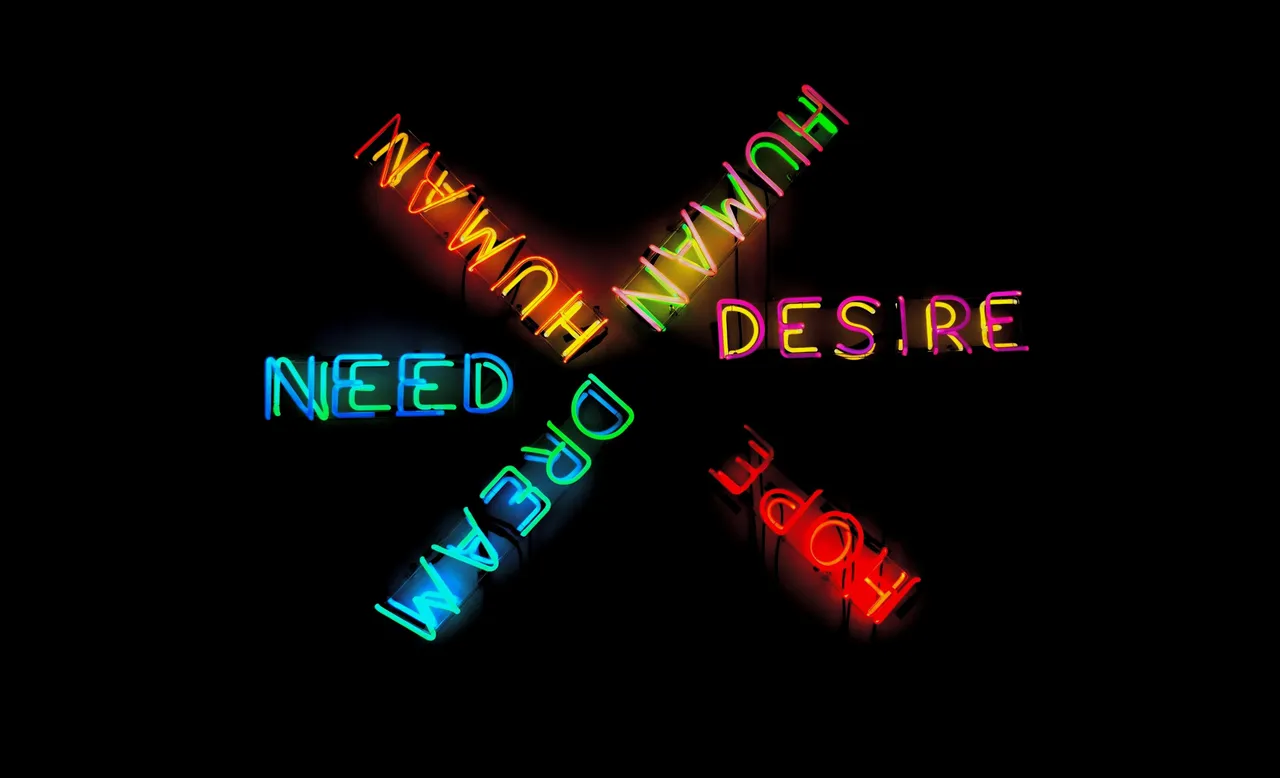
Do you think that people are really crazy sometimes? And that they're thinking weird thoughts?
Well. You do that, too. I am sorry.
Car breakdown on a busy road.
You are trying to reach for help, but no one is paying attention to you, has or offers help. The traffic, the noise and your deadlines cause stress. In a situation like this, you're highly susceptible of fantasizing: "Damn, always me! Why does something like this happen all the time when I need it the least? Doesn't anybody see me? They even accelerate and drive extra fast past me! Selfish gang! And I can't reach anyone in the office, they're having a lazy morning!"
You are now inclined to let your superstition run wild: "Jesus, that must be a bad sign! Maybe I should have preferred to help the mother and her baby on the bus. Is this a bad omen?"
Yeah, you're laughing. But the next time it happens, be aware that you will do it (!) regardless of your cool, rational mind.
In very few cases, the behaviour of others has mostly to do with you.
Others are way to busy with themselves.
The people in the passing cars have their own fiction up there and only notice you when they don't think about their thoughts or get angry about the driver behind them, who only does it because "I did the turn signal too late and he is now pissed. Well, I'll show him who is the boss!" Meanwhile you shook your fists towards them, because they all roared past you at a breakneck speed and - even that! - sprayed you all over.
Being aroused obviously is doing no good for staying realistic about people and their intentions.
In an aroused state of mind actually nobody is aware of anybody.
What instead takes place: the mind is busy constructing its reality.
If you're in a condition I call "construction-resistant", everything should be fine. One could also call it "clear consciousness". Or "realistic" - also "relaxed" - or simply "not stressed".
If none of this is the case, then you are just as susceptible to constructing your reality as the rest of us.
This is not all. Also, you are a pretty good architect of what you call your memories, e. g., when it comes to pleasant things. Like the "good old times". Or the last vacation. You tend to become a little gooey about that and float in warm fantasies about "how authentic the locals were" (you haven't get to know one) and how things were back then "less hectic".
Obviously a lot of what we reveal as to be true, is wishful thinking. Also it can be an unconscious intention to protect what is psychologically to difficult to deal with (a necessity). And a good amount is just habit.
After this long introduction, I will present today's topic:
Constructivism in the form of strong beliefs
I know that sounds a bit lame, but I want to stay correct and not give the impression that I am familiar with constructivism as a whole. This is only one part and I would like to illustrate it here.
I give you now a more scientific definition of "constructivism"
"constructivism is an epistemological premise grounded on the assertion that, in the act of knowing, it is the human mind that actively gives meaning and order to that reality to which it is responding". The constructivist psychologies theorize about and investigate how human beings create systems for meaningfully understanding their worlds and experiences.

It is the meaning people give to the events they encounter. Like raging about the passing cars and cursing the "rude" occupants. Or being ridiculed from a maths teacher as a child which then was internalized as a sentence of believe like "I am bad at maths" even though there are no facts that prove that (brain damage, learning weakness, other kinds of disabilities). What makes it real that "I am bad at maths" is my strong believe (my construction) and that I never made the attempt to investigate if that is indeed true.
Top scorers
Parents are to blame for everything
Psychology, along with its huge benefits, has also presented some difficulties. The strong belief that the parents have screwed up pretty much everything that one denounces as one's flaws and difficulties in life, which are chastised by the parents. Which is certainly not quite wrong, but it is also not entirely correct. The problem here are the beliefs that manifest themselves in the course of time (the actual past event is long over but it's meaning reaches out into the present), which are treated as an unbreakable foundation of the psyche and therefore act as a kind of persistent resistance to therapy and healing optimism. As if things were unchangeable. Also, because a very firm belief theorem can be anchored in the identity of a person like an invisible netting and if one wants to tear it out with a jolt, would probably cause more harm than good.
I am a victim
Some of my clients are strongly convinced that "the world is unfair". This had in some cases hardened even more so from recent happenings. It became their reality in which they are giving prove to what is present and will come next (because it always happened in the past, too). This believe - to be a victim - effects their human encounters to the extend that more problems arise.
One does this to stay in ones mind and experience the world as coherent. To a certain extent, this is quite normal, we all construct our reality.
Constructivism is not a monolithic perspective containing a single extensive set of ideas, principles and concepts that all proponents accept, and these proponents do not exist within a very tightly-knit academic community (Stahl, 1991; Phillips, 1995). Rather this theoretical perspective is an evolving set of ideas within which widely different viewpoints have emerged. Given the concepts and principles of its various theorists and advocates, a single homogeneous constructivist theory is neither likely nor possible.

Constructivism is not a new tree in the forest. It is, rather, a glimpse of the connectivity among all trees, along with their elaborately networked supports. What is developing is not just a new theory or model. Constructivism is a perspective on personal psychology, social functioning, and human change. It is both old and new. Unity and diversity are being integrated in ways that speak to traditions of holism and hope. Dialogues are taking place that suggest an evolutionary leap in our understanding of what it means to be human.
When you don't look at the noun but on the verb, it is more obvious what it means: In the term "construct" you find "structure" - to construct means to create order or to organize something. Here you can see the root of a tendency humans show: that things stay the way they are, that they can remain unchangeable, static. But when one digs deeper into human existence and consciousness it becomes clear that what was formally accepted as, for example, a solid character trait, can be questioned when the dismantling of a construction was successful.
What makes the construction so strong is that one focuses on it and ignores and undervalues the moments where the opposite (or exception) actually happens.
Also popular: "I must be perfect".
Whenever someone is saying something good, it will have a huge positive effect and when someone says something bad it will have a huge negative effect. Let's say on a scale from 1 to 100 - "normality" is when the evaluation of peoples statements are located in the middle at 50.
Where the construction (believe) leads to suffering is in the very high numbers.
If the feeling is "95" it becomes obvious that "what people think of me" (and talk behind my back, ridicule me etc.) is highly overrated. One can never be perfect enough to meet all expectations of all people.
It is possible to find the exception to this rule
In every humans life there are events and encounters when a construct doesn't have a chance to rule a situation. This events a therapist or a consultant has to dig for. You always can find the gold, if that is what you are up to.
I am fascinated by constructivism and obviously many other humans are and were as well (some of those names I already mentioned in my other stem-related articles):
Constructivist themes can be found in Asian philosophy (Lao Tzu and Buddha), Western philosophy (Heraclitus, Kant, Vico, Schopenhauer and Vaihinger), and in the works of a plethora of pioneer and contemporary psychologists (Adler, Bandura, Bruner, Bugental, Frankl, Gergen, Goolishian, Kelly, Piaget and Watzlawick). From the diversity of such works as these, one can draw five basic themes that constitute the essence of constructivism. These themes are: a) active agency, b) order, c) self, d) social-symbolic relatedness, and e) lifespan development.
I recommend that you read the basic themes to this list.

Dissolving a mental construction in the systemically integrative consultancy:
In many of my articles I refer to psychological writings and discoveries. The consulting profession is always a kind of borderline, where it is clear that I am not a therapist, but I do have access to therapeutically used tools, but I neither make diagnoses nor treat them. The people who come to me voluntarily choose my consulting, know my systemic approach and know that my coaching includes elements of family therapy.
I would like to present my own example for the discovery of a mental construction
My construction was revealed within the framework of a method called "target approach constellation", which works with a timeline (I might explain this method in another article, it would go to far in this context). As a client, I have made a form of installation by means of moderation cards lying on the ground ("floor anchors").
One of the aims of this type of positioning is to formulate a goal. Now I should name from my point of view various helpers and hurdles. One of my hurdles was "lack of self-discipline".
My "aha-effect"
Up to that point in time, as long as I can remember, I was firmly convinced that I did not have good self-discipline. For the first time ever, I really felt seriously in this line-up the doubt whether this can be true at all and where this firm faith could come from. One thing became abundantly clear to me: that this was nonsense. Both nonsense in the sense that my entire person could be meant by it and in the sense that I have very often disciplined myself incredibly well. I became clearly aware of the absurdity of my firm belief in an alleged character trait.
Since then, I've got rid of this mental construction of reality and have stopped talking about how undisciplined I had been in my childhood and at all. Part of me may tend to be lacking in discipline at times, but that is quite normal and not worth mentioning.
Accept what you find
In general, I find the examination of the (constructivist) mentality to be extremely useful and helpful for personal maturation. Like a sculptor, it is as if one were trying to uncover one's own personality structure, only to find out that the figure appearing underneath looks one way or another. In space-time structures, inner and outer processes play a role, on which one is currently focused. And since this is constantly changing, I advocate, among other things, the assumption of 2nd order cybernetics, which "eliminates the concept of objective reality and instead describes the" intrinsic value "of the cognitive system as a result of recursion processes".
I hope, you enjoyed this lengthy article.
I finish it with a quote I once heard from Alan Watts: "The mind is a good servant but at bad master."
Thank you for reading.
Text sources:
Constructivism: https://en.wikipedia.org/wiki/Constructivism_(psychological_school) Meaning making: https://en.wikipedia.org/wiki/Meaning-making How to stop playing the victim game: Psychology Today - Dr. Robert Firestone https://en.wikipedia.org/wiki/Victim_playing https://de.wikipedia.org/wiki/Kybernetik_zweiter_Ordnung (German) https://en.wikipedia.org/wiki/Second-order_cybernetics Picture sources:
Photo by Cody Davis on Unsplash
Photo by Robert Katzki on Unsplash
Photo by Alexis Fauvet on Unsplash